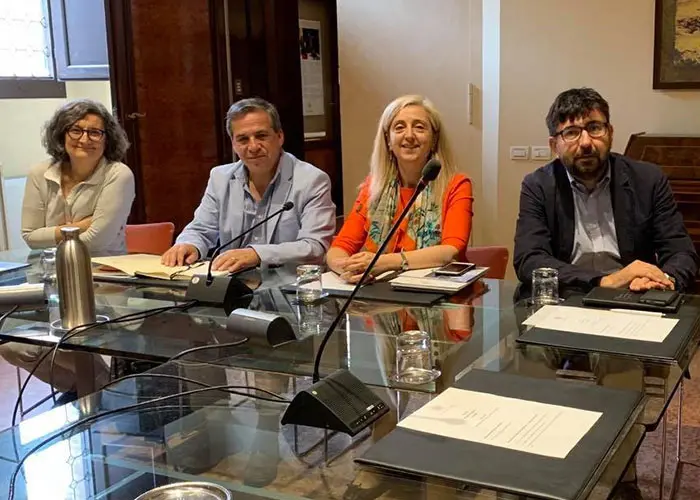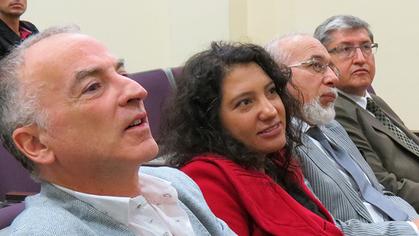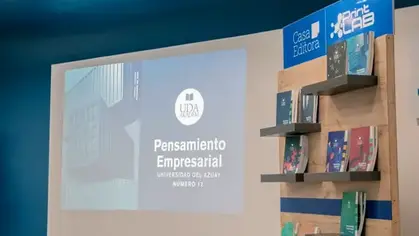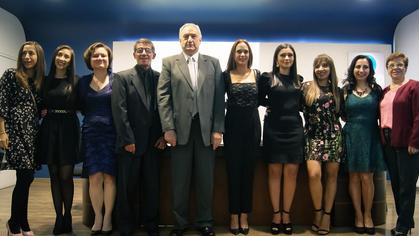The UDA deepens its relationship with the Italian academic community

Following the invitation of the Embassy of Ecuador in Italy, the Rector of the University of Azuay, Francisco Salgado, attended the city of Rome for the signing of an agreement with the National Research Council of Italy to strengthen the international relations of our institution.
The objective is to carry out research projects with the Italian higher education system among professors and students of our community and of nine other Ecuadorian universities.
The Rector also visited the University of Bologna, recognized as Alma Máter and the oldest university in the western world, where he met with the Pro-Rector of International Relations María Laura Bolognese and Professor Elisa Ercolessi, a member of the University Senate, with whom he agreed collaboration in areas of physics and biodiversity, and climate change.
At the Milano Bicocca University, Salgado signed a cooperation agreement with the rector Cristina Massa, in order to deepen an already long experience of collaboration with the Milanese community, in particular with the Department of Environmental Sciences where cooperation from 1986 stands out with Professor Roberto Todeschini - who is also our Honorary Professor - and Professor Franco Previtali.
At the Federico II University of Naples, he held a working session within the framework of the agreement called “Update of the landslide inventory in areas of the Cuenca canton” carried out by the IERSE with the research group that leads this project, of which the Professors Massimo Raimondini and Diego Di Martire.
With both teachers, the execution of the landslides and risks project originated by tectonic movements in the region was agreed, whose last study on the subject was carried out by PRECUPA more than 20 years ago following the Josefina catastrophe in March of 1993, without the country and the region, since then, have updated information that allows planning and determining future risks for the area.
This academic visit was made with the support in the programming of Dr. Raffaella Ansaloni and with the accompaniment of Dr. Piercósimo Tripaldi.




